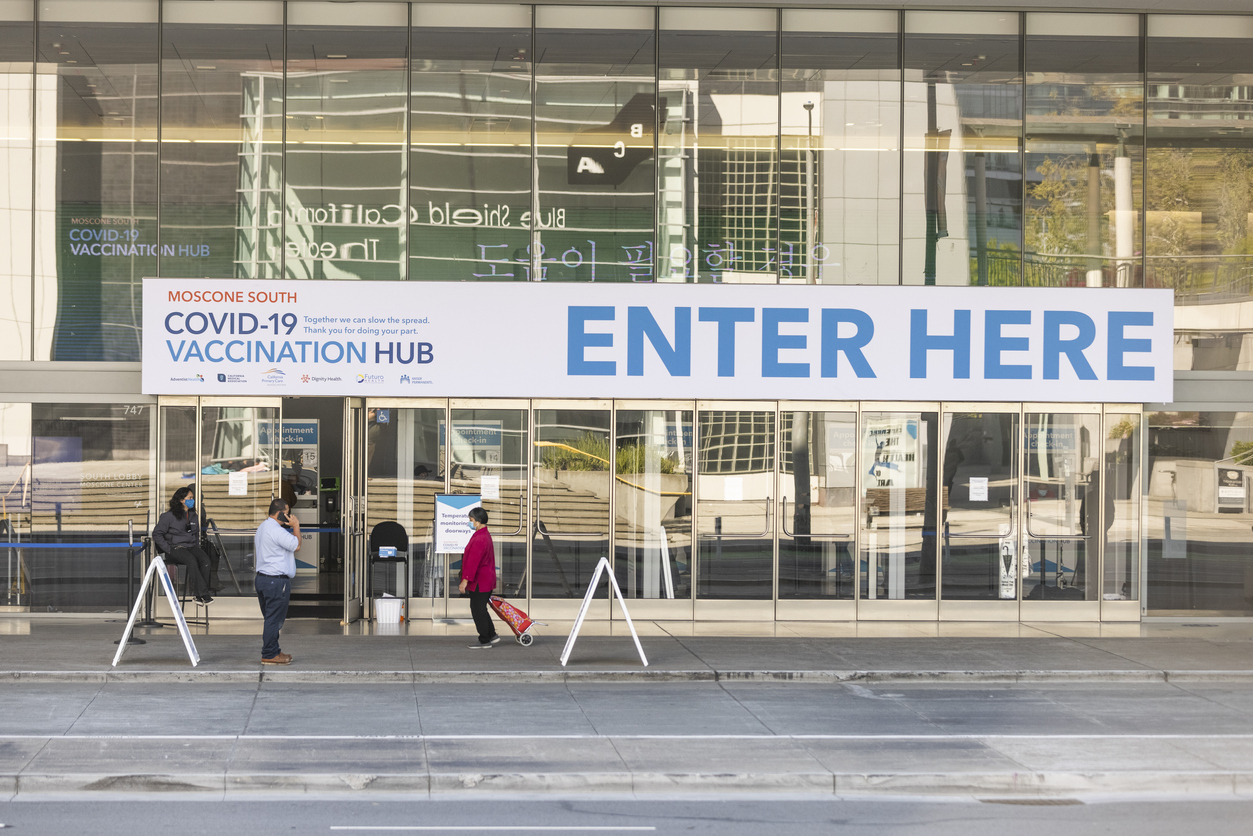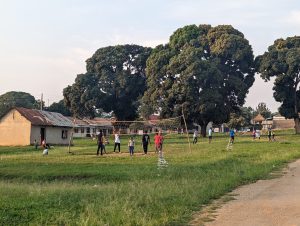Slightly more than 48 percent of the U.S. population is fully vaccinated against Covid-19, and nearly half of unvaccinated Americans say they won’t get the jab.

In an op-ed for STAT, CUNY SPH Distinguished Lecturer Scott Ratzan and Georgetown Law Professor Lawrence Gostin outline proven ways to encourage Covid-19 vaccine uptake.
Proven ways to boost Covid-19 vaccination: mandates plus nudges
By Lawrence O. Gostin and Scott C. RatzanJuly 22, 2021
The United States is approaching a plateau in vaccination rates at a perilous moment as the highly transmissible Delta variant has become the dominant strain.
People are throwing away their masks and going to restaurants, movies, and traveling as they did in the time before the coronavirus pandemic emerged. New Covid-19 cases have doubled during the last three weeks, with the vast preponderance of hospitalizations and deaths among people who have not been vaccinated. Slightly more than 48% of the population is fully vaccinated, and nearly half of unvaccinated Americans say they won’t get the jab. Some states in the South and Midwest have vaccinated less than 40% of their populations.
It’s time to get serious about vaccination. If we have a checkerboard of communities across America without adequate uptake of Covid-19 vaccines, we will never stem the pandemic.
Evidence-based tools can make us all safer and more secure by making vaccination the default choice in Americans’ everyday lives — in schools, businesses, and hospitals.
The case for vaccine mandates
Let’s begin with vaccine mandates. Writing in STAT, Ezekiel Emanuel and colleagues made the case for mandates in health care settings. There is strong evidence that mandates achieve high immunization coverage in a variety of settings. Influenza vaccination coverage is highest (94.4%) among health workers where vaccination is required.School entry requirements dramatically boosted and maintained high levels of childhood vaccinations. Colleges and universities have a history of mandating certain jabs such as hepatitis B and meningococcal vaccines. Currently, nearly 600 colleges and universities have announced Covid-19 vaccine requirements. On July 19, a federal judge upheld Indiana University’s vaccine mandate, ruling that it served a valid public health interest. Requiring vaccinations in post-secondary education can help reach young adults who are among the most resistant to Covid-19 vaccinations.
Mandating vaccination as a condition for returning to the workplace would make it the norm, becoming a key setting for expanding vaccine coverage nationally. In fact, many surveys demonstrate an overwhelming majority of Americans support employer requirements for vaccination as a condition to return to work.
Three simple steps would boost vaccine coverage. First, the Food and Drug Administration should grant Covid-19 vaccines a biologics license. States, businesses, and universities would be more inclined to require vaccines that were fully approved than those being administered under emergency use authorization. Many individuals who think the vaccine is “experimental” would be encouraged to get the jab if the FDA granted full approval.
The case is overwhelming, and the FDA shouldn’t wait much longer.
Second, once Covid-19 vaccines are fully approved for all school-age children, the Centers for Disease Control and Prevention’s Advisory Committee on Immunization Practices should consider recommending their inclusion as a prerequisite for in-person instruction.
Third, the Biden administration should encourage reliable and secure “proof of vaccination” systems. The CDC could fund and offer technical guidance to states, schools, and businesses for the development of trusted systems to confidentially authenticate vaccine status.
Beyond mandates: a ‘nudge’
We understand that vaccine mandates have become a political third rail. There are less restrictive ways to achieve high vaccination coverage. Nudges — ways to influence people’s choices without forbidding any option — are proven to work. One kind of nudge is what we call routine offering. That is, everyone in a given setting — whether it’s a school, workplace, or hospital — is scheduled to receive a Covid-19 vaccine. Most people would get the jab if their peers were all being vaccinated. People could opt out, but not easily. They would have to undergo a process, such as attending a vaccine education session or simply filling out a declaration saying why they won’t get vaccinated. States that have more detailed exemption processes for parental exemptions achieve significantly higher rates of childhood vaccinations. The same dynamic would be effective for Covid-19 vaccines by placing a small burden on those who choose to remain unvaccinated.Here’s another nudge that’s proven to work. If an employer or college, for example, required unvaccinated members of their community to take safety precautions, which were enforced, most people would not want to undertake the burdens. Those who opt out would have to always use a mask indoors, distance themselves from their peers, and undergo routine testing once or twice every week. Those safety measures are fully justified, but most would want to get back to normal and would just get the jab. Unvaccinated individuals would also not want to be singled out as different from their peers.
Behavioral science research shows the power of nudges to make the healthier and safer choice easier and the risky choice harder. Nudges also operate by showing vaccine-hesitant individuals that their peers are getting the jab. Vaccinations would become routine and expected. They would become a gateway to all the things we value from learning and working to going to the movies, dining in restaurants, attending sporting events, and traveling.
Today, remaining unvaccinated is too casual a choice given its dangers. Refusing to be vaccinated poses major threats to others, especially vulnerable individuals who have weak immune systems or children who can’t be vaccinated. It also prevents our nation from achieving the level of herd immunity to protect everyone from the dangers of Covid-19 and the new variants rampaging through the country.
We need to make being vaccinated the easier default choice. If we do that, watch how quickly we will achieve, and far exceed, President Biden’s goal of 70% of the adult population getting at least one dose. Then we can really celebrate freedom from the coronavirus.
Lawrence O. Gostin is a professor global health law at Georgetown University Law Center where he directs the O’Neill Institute and the World Health Organization Collaborating Center on National and Global Health Law. Scott C. Ratzan is a physician, distinguished lecturer at CUNY Graduate School of Public Health, and executive director of Business Partners to CONVINCE, a global network of employers that promote vaccine literacy and encourage Covid-19 vaccination among employees, suppliers, and customers.




